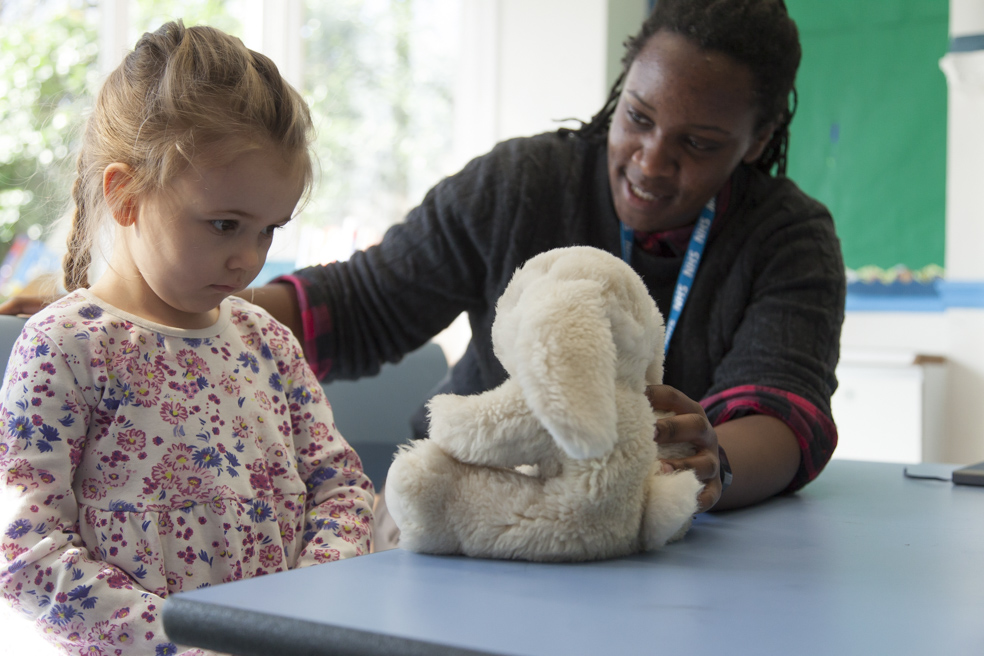
Children’s brain and emotional development (DAA003)
Understand how early experiences impact brain development and children’s behaviour
This five-hour online course will help you to understand children’s emotional and psychological states in the context of exciting new research into the brain, body and nervous system.
Through interactive content, you’ll gain insights about the impacts of early experiences on the brain that support your work with children and young people, and be able to download a CPD certificate upon completion.
“I am excited to be offering the Understanding and nurturing troubled children courses, of which this is one. They provide an indispensable synthesis of the latest clinical and scientific knowledge about children’s emotional development,” says course lead, Dr Graham Music. “They integrate longstanding clinical understandings from the Tavistock’s child psychotherapy traditions with a wealth of both up-to-date and classical research from areas such as attachment theory, neuroscience, developmental psychology and cross-cultural studies.”
“They unpack the most significant influences on the developing child, including the family and social context, looking at key developmental stages and covering important topics such as genes and environment, trauma, neglect, resilience, and neurobiology. Full of fascinating findings, they provide answers to many of the questions people really want to ask about child development.”
Aims and learning objectives
This clear and accessible course explores how early experiences shape the structure and functioning of our brains and nervous systems, and how this can be seen in children’s behaviours, minds and emotions. By the end of the course, you will have a better understanding of the effects of trauma, neglect and abuse, how resilience can develop, and how this information can be used to positive effect in your practice when working with children and young people.
You will learn by:
- exploring key concepts through interactive lecture content and videos
- deepening your understanding via regular opportunities for reflection
- considering a case study to help apply the theory to your work
- testing your knowledge with a multiple choice quiz which will unlock access to your CPD certificate upon completion
Who is this course for?
We welcome anyone to this course who has a keen interest in the subject area. In particular, this course is for you if you are working with children, young people and families, and wish to learn more about cutting edge research in this area, and how it can be applied to your work.
You may be working in:
- a school
- social services
- healthcare
- the voluntary sector
- or you may be considering work with children in the future
If you are looking to commission a number of places on this course for your organisation or service, please contact us first at CPDevents@tavi-port.ac.uk. Group discounts may be available on request.
We would also be keen to hear from you if you would be interested in discussing additional tailored, live training options for your staff, to embed or expand upon the learning from this course.
Course details
This course runs continuously, so you can sign up at any time. It offers five hours of self-directed online learning which you can undertake at a time, pace and location that suits you.
You will have access to the course and its materials for one year. Access begins the day after you’ve booked, when you will receive your account details by email.
This course is also available as part of the Understanding and nurturing troubled children course bundle, a convenient option that offers one year’s access to four complementary courses.
This course will allow you to:
- make sense of children’s behaviours and mental states by linking these to family background, biological inheritance and emotional contexts
- gain an awareness of how the brain and nervous system develop, and the impact of early experiences on how children behave, think and feel
- understand the impact of adverse experiences, and how emotional growth and resilience can develop as a result of positive new experiences
- apply this knowledge to your own interactions with children and young people – understanding that change is always possible, even in our brains.
There are no specific requirements for the course, although we suggest you are working with, or have an interest in working with children, or want to learn more about the effects of difficult early experiences on children’s minds and behaviours.
There’s a multiple choice question assessment at the end of the course, which will unlock a Tavistock and Portman NHS Foundation Trust CPD certificate upon completion.
Testimonials
Why study with us?
The Tavistock and Portman NHS Foundation Trust has been at the forefront of exploring mental health and wellbeing for over 100 years. We bring our extensive experience to this course as the only NHS Trust to be registered as a Higher Education Provider by The Office for Students. This means your learning will be grounded in practice and real life application. We have made our training accessible and available to everyone to explore in your own time, at your own pace.
Course facilitators
Accreditations

This course has been independently evaluated for Continuing Professional Development purposes by the CPD Certification Service. This means that the learning activity meets global CPD standards and benchmarks, and the learning value has been scrutinised to ensure integrity and quality.
Book your place today
This course runs continuously. You can book a place at any time using our MyTAP booking system. Access begins the day after you’ve booked, when you will receive login details by email.
Save with our cost-effective bundles
This course is also available as part of a convenient, cost-saving bundle – providing you with one year’s access to four complementary online resources.